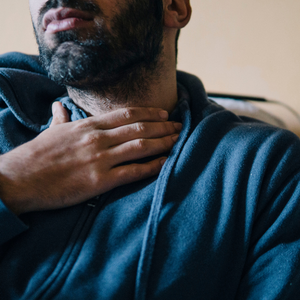Pill Esophagitis

Pill esophagitis is a term which refers to food pipe or esophagus lining inflammation/ulceration due to corrosive action of certain medications when they have prolonged contact with the lining of the esophagus. Drugs that have been linked to esophagitis include:
- Alendronate (Fosamax) and similar medications also called Bisphosphonates. These are used to treat osteoporosis or brittle bones.
- Antibiotics, such as and doxycycline and tetracycline.
- Anti-inflammatory or Pain-relieving medications, such as aspirin, ibuprofen (also known as Advil, Motrin, etc.), Naproxen (Aleve), Diclofenac, etc.
- Potassium supplements used as an adjunct with water pills or to treat low potassium levels.
- Quinidine, a heart medication, used to treat irregular rhythm.
Treatment
Treatment involves use of acid reducing medications and a soft diet. If the ulceration results in scar buildup and narrowing of the lumen of the esophagus, it may need to be stretched open with a balloon at endoscopy.
To prevent this from happening in the future, we would recommend:
- Swallowing a pill with at least 1 glass of water.
- Sit or stand for at least 30 minutes after taking pills.
- Avoid taking drugs right before sleep.
FAQs
Pill esophagitis is a condition in which the lining of the esophagus is irritated or damaged due to the ingestion of medication in pill form. This can occur when pills are not properly swallowed or if a person has a difficult time swallowing pills.
Symptoms of pill esophagitis include difficulty swallowing (dysphagia), chest pain, heartburn, and pain with swallowing (odynophagia). Other symptoms may include coughing, hoarseness, and regurgitation of food or pills.
Pill esophagitis is most commonly associated with medications that are corrosive or have the ability to break down the lining layer if lodged in the esophagus.. These include non-steroidal anti-inflammatory drugs (NSAIDs), bisphosphonates, potassium supplements, and certain antibiotics.
Pill esophagitis is typically diagnosed based on symptoms and an endoscopy, where a small camera is inserted into the esophagus to examine the lining, may be done to confirm the diagnosis.
Treatment for pill esophagitis typically involves stopping the medication that is causing the irritation, and taking antacids or other medications to relieve symptoms. In severe cases, a liquid or crushed form of the medication may be prescribed.
Pill esophagitis can be prevented by taking medication as prescribed and swallowing pills with a full glass of water while sitting upright. If a person has difficulty swallowing pills, they should speak to their healthcare provider about alternative forms of medication.